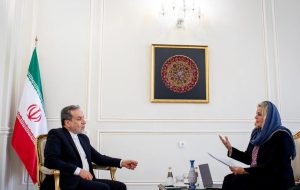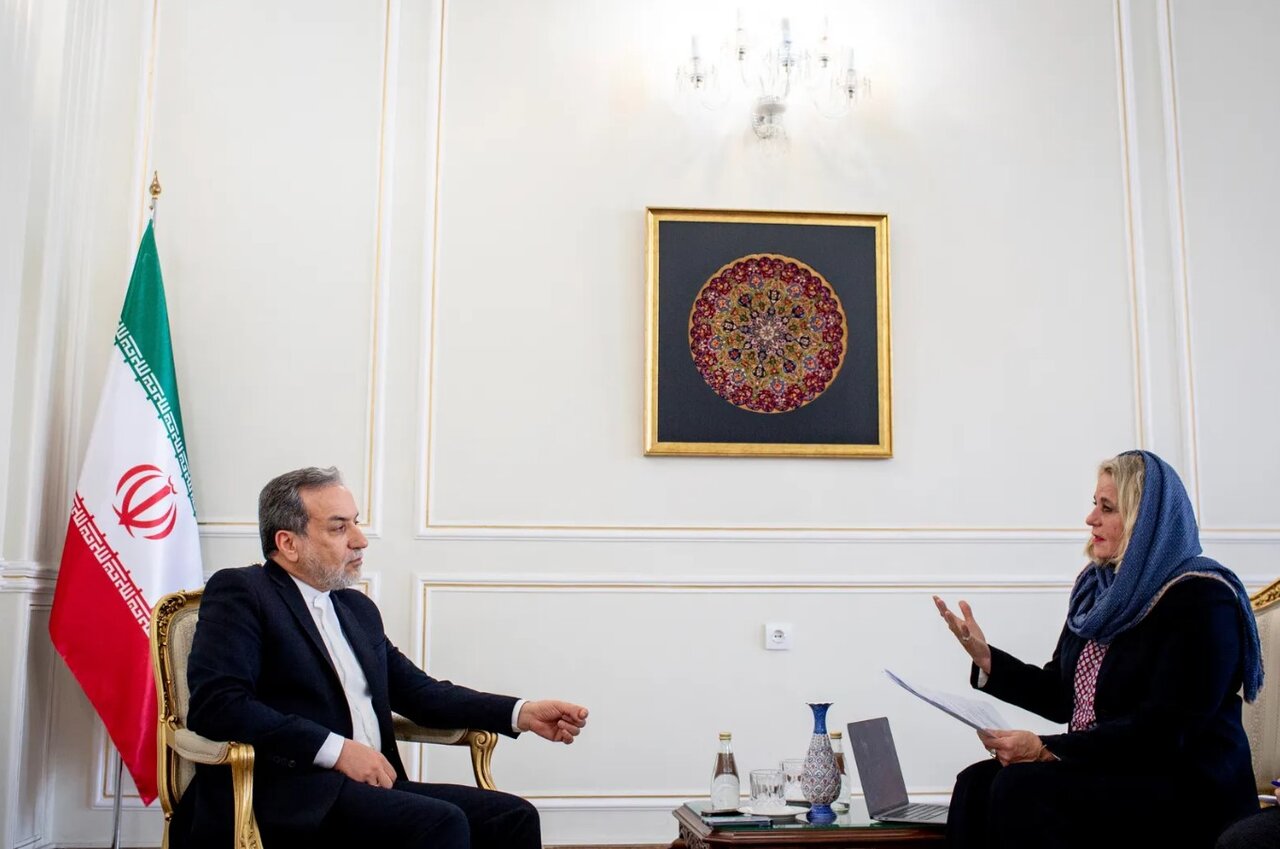Germany’s silence on Gaza is height of Western double standards: Iran FM
TEHRAN – Iranian Foreign Minister Abbas Araghchi criticized Germany over its response to the case of German-Iranian prisoner Jamshid Sharmahd and the broader diplomatic rift that has since emerged. He made the remarks in an interview with the German weekly Der Spiegel, published on Friday. The incident has significantly strained Iran-Germany relations, with Germany recently


TEHRAN – Iranian Foreign Minister Abbas Araghchi criticized Germany over its response to the case of German-Iranian prisoner Jamshid Sharmahd and the broader diplomatic rift that has since emerged.
He made the remarks in an interview with the German weekly Der Spiegel, published on Friday.
The incident has significantly strained Iran-Germany relations, with Germany recently closing Iran’s consulates. Araghchi contended that Germany’s actions demonstrate double standards and accused Berlin of selectively applying its human rights concerns.
Araghchi defended Iran’s handling of Sharmahd, who was sentenced to death after being accused of orchestrating a 2008 mosque bombing in Shiraz, which killed 14 people and injured over 200. While Western critics argue that Sharmahd was denied a fair trial and possibly subjected to mistreatment, Araghchi disputed these allegations, stating that Iran’s legal process met Iranian standards.
He argued that Sharmahd’s self-incriminating statements about his role in the bombing — which he made while living in the U.S. — justified the sentence under Iranian law.
The Foreign Minister also voiced frustration with Germany’s apparent uproar over the case, noting that Sharmahd is a terrorist undeserving of Western support. Araghchi expressed disbelief at the diplomatic escalation, suggesting that European governments should consider Iran’s perspective and avoid political propaganda.
“I regret that this is straining German-Iranian relations and I wish I could have prevented it,” Araghchi said.
“But to do that, the German government would have had to cooperate and communicate that this is a terrorist, instead of defending someone who has trampled all humanitarian standards underfoot,” he added, according to Spiegel’s English edition published online.
Throughout the interview, Araghchi highlighted what he called Europe’s inconsistency on human rights. He accused Germany of overlooking casualties in Gaza, citing Europe’s response to the current conflict between Israel and Hamas as indicative of selective human rights concerns. In his view, Germany and Europe’s vocal condemnation of Iran contrasts sharply with muted criticism of Israel.
“Europe’s selective support for human rights only deepens global divides,” Araghchi argued, pointing to the lack of sanctions on Israel despite ongoing Palestinian suffering. He added that these inconsistencies fuel mistrust and deepen the rift between the West and nations like Iran.
Araghchi took the opportunity to defend Iran’s support of groups such as Hezbollah and Hamas, which Tehran views as freedom movements resisting Western influence. He questioned the West’s designation of these groups as “terrorist organizations,” arguing that they reflect Iran’s commitment to independence and resistance rooted in the principles of the 1979 Islamic Revolution.
Further addressing claims of Iran’s alignment with Russia amid the Ukraine crisis, Araghchi clarified that Tehran fully supports Ukraine’s territorial integrity and never has approved of Russia’s military invasion.
On the possibility of reviving the 2015 nuclear deal, Araghchi signaled Iran’s tentative openness to negotiations but stressed the need for a fresh agreement as the current one is set to expire in October 2025. He pointed to Europe’s failure to fulfill its obligations following the U.S. withdrawal from the deal in 2018 as a significant obstacle, yet expressed hope for renewed dialogue over further sanctions.
Addressing German Foreign Minister Annalena Baerbock’s call for an investigation into Iran’s handling of domestic unrests in 2022, Araghchi dismissed such inquiries, insisting that external interference only exacerbates tensions. He criticized Baerbock’s push to designate Iran’s Revolution Guards as a terrorist organization, calling sanctions ineffective and harmful.
In closing, Araghchi called on Germany to reconsider its confrontational stance, suggesting that continued sanctions and diplomatic pressure would only serve to deepen the divide between Iran and Europe. He urged for a renewed emphasis on dialogue and mutual respect, warning that escalation could lead to lasting damage to Iran-Germany relations.
